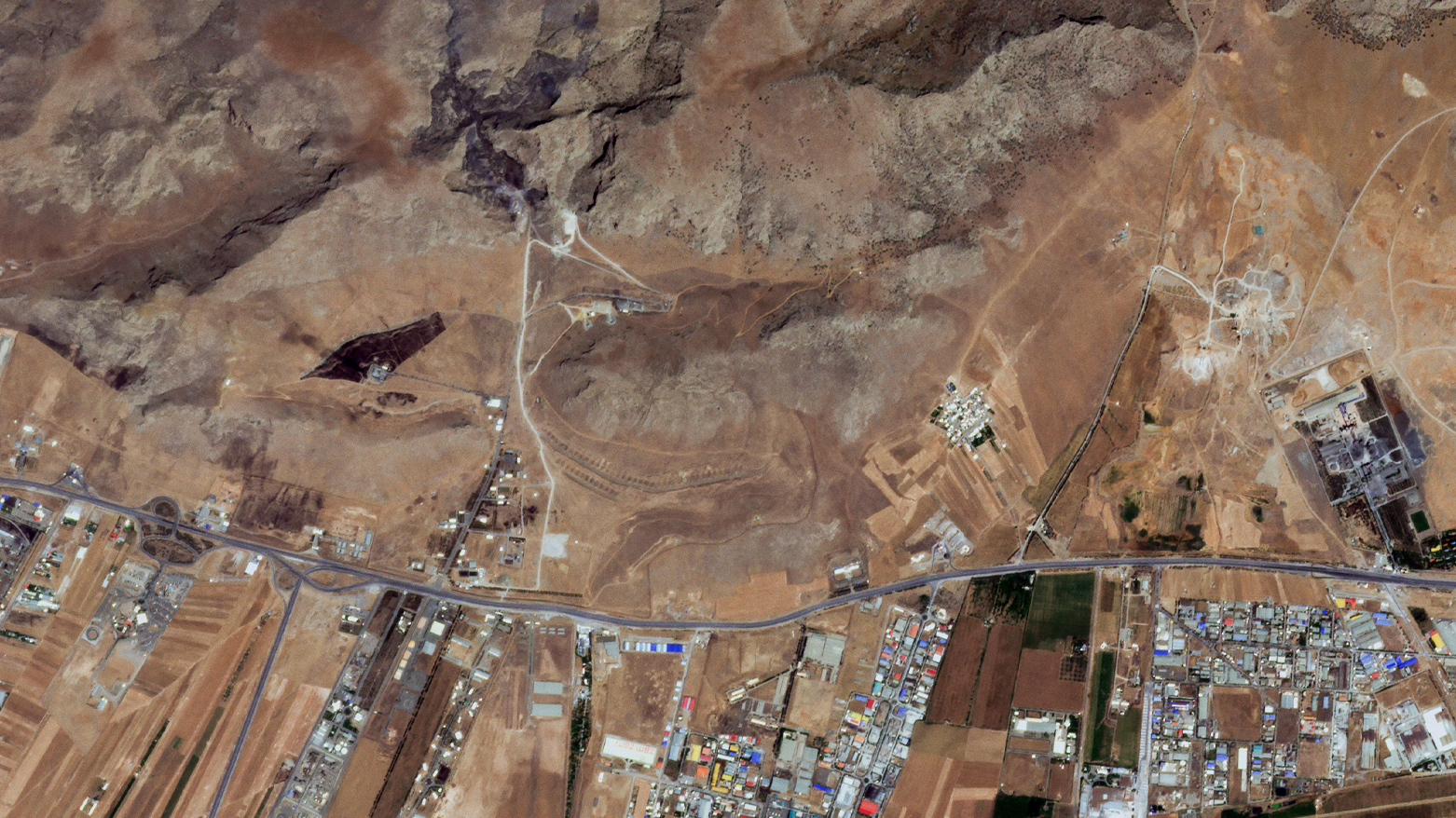Israel Strikes Western Iran Military Sites as War Enters 11th Day
Israel struck military sites in Iran’s Kermanshah as war entered day 11. Iran vows retaliation over U.S. and Israeli attacks. Tensions escalate with no signs of de-escalation. Macron urges restraint amid fears of wider regional conflict. Casualties remain unconfirmed.

By Kamaran Aziz
ERBIL (Kurdistan24) — The Israeli military on Monday announced that it has launched fresh airstrikes targeting military infrastructure in western Iran’s Kermanshah province, as the armed conflict between the two regional rivals entered its eleventh consecutive day.
According to a statement from the Israeli army cited by multiple agencies, “The Israeli air force is currently striking military infrastructure sites in Kermanshah in Iran.” The operation marks the latest in a series of tit-for-tat strikes that have dramatically escalated tensions in the Middle East.
The ongoing war was triggered by Israel’s pre-dawn assault on June 13, 2025, under “Operation Rising Lion,” in which Israeli fighter jets and drones launched large-scale airstrikes on Iranian nuclear facilities and ballistic missile production centers. Among the targets reportedly hit were the Fordow and Natanz enrichment plants and IRGC command posts. The Israeli operation resulted in the deaths of several senior military commanders and top nuclear scientists, according to Tehran.
Iran responded with “Operation True Promise III” later that night, launching dozens of ballistic missiles at multiple Israeli cities, including Tel Aviv and Haifa. Iran’s missiles also struck residential neighborhoods, causing substantial destruction and casualties. The mutual hostilities have continued unabated ever since.
On Monday, as Israel confirmed strikes on Kermanshah, Iran’s ambassador to the United Nations condemned the military actions and the United States’ involvement in the conflict. Referring specifically to U.S. airstrikes conducted the day before on Iran’s nuclear facilities, ambassador Amir Saeid Iravani described the attack on Iran’s safeguarded nuclear sites—Fordow, Natanz, and Isfahan—as “a clear and flagrant breach” of multiple legal instruments, including the UN Charter, IAEA statute, and Security Council resolutions 487 and 2231.
Iravani warned that Iran reserves its full right under international law to respond proportionally to what he called “blatant U.S. aggression and its Israeli proxy,” adding that the nature and timing of any retaliation would be determined by Iran’s armed forces.
The international community is increasingly alarmed by the spiraling violence. French President Emmanuel Macron on Monday called on all parties to de-escalate and avoid further military confrontation. "No strictly military response can produce the desired effects," said Macron.
The escalation has drawn global attention, with warnings that continued conflict between Israel and Iran could ignite a broader regional war. Both sides have shown no signs of backing down, as military operations continue across multiple fronts. The Israeli strike on Kermanshah marks a geographic expansion of hostilities, bringing the battlefield deeper into Iranian territory.
As of now, casualty figures from the Kermanshah airstrikes have not been independently confirmed. Both Israeli and Iranian officials remain tight-lipped on the operational specifics, but the situation on the ground continues to evolve rapidly.
Observers warn that without international mediation, the conflict risks slipping into an uncontrollable spiral with devastating consequences across the Middle East.